Friday, 19/04/2024 | 21:41 GMT+7
Since the beginning of 2022, when the Ukraine invasion bursted, energy and raw materials prices for industrial production have surged. For example, diesel prices elevated up to above $130 per barrel at some points. This poses a possible energy crisis threat to the globe.
In this context, as an emerging economy prioritising resources for maintaining the economic development pace, Viet Nam needs to solve the urge of energy demand for industrial production. Several methods have been given, in which energy efficiency (EE) is among the top priorities.
.jpg)
Energy efficiency is an essential premise to help Viet Nam soon achieve the net-zero goal by 2050
The Ministry of Trade and Industry (MOIT) plays a key role in consulting the Government to develop policies and solutions to promote EE and support enterprises in transforming and applying hi-tech in production models for sustainable development. Therefore, in recent years, MOIT has developed multiple guidance and detailed concepts for implementation. These aim to enhance the effectiveness of climate change impact reduction, contribute to Viet Nam's commitment to climate change adaptation for the Paris Agreement as well as pledge to a net-zero pathway by 2050 at the COP 26. They are reflected in the following three main points:
Firstly, enhancing communication activities. Focusing on mobilising and promoting people and businesses about the benefits of EE and sustainable development. Organising the National Press Awards for EE promotion, which have coordinated with the Journalist Association, setting up multiple EE awards, conferences and workshops to share knowledge and lesson learned on EE investment, EE solutions, clean production, technology transfer in various industrial sectors, etc.
.jpg)
MOIT actively consults the Government to develop policies and solutions to promote EE
Secondly, promoting activities of investment support. Recommending the authorities to develop and implement financial mechanisms which can leverage enterprises’ accessibility to financial aid. Through these, they will have more resources to replace obsolete lines and machines with higher-energy-performance and cleaner technologies. Besides, MOIT has implemented various projects to do technical and financial support to push multiple EE projects of private sectors and EE market movement. Projects include activities such as manufacturing, renovating, market transformation for vehicles, equipment, machinery and production lines.
Thirdly, capacity building through resources from the National Energy Efficiency Program (VNEEP) and the National Sustainable Production and Consumption Program (SCP). Organising a variety of training and workshops to build up the capacity of local authority staff and energy managers of key energy-use facilities. They include specialised training and workshops about technologies of EE and clean production to help industrial enterprises apply those technologies in their innovations and solutions to improve their energy use.
.jpg)
MOIT prioritises technology and financial support to boost EE in industrial enterprises
Synchronous methods
Based on MOIT’s guidance, the Department of Energy Efficiency and Sustainable Development (EESD) has implemented a number of specific solutions to realise the set goals.
The first solution is to review, develop and finish EE mechanisms and policies. Currently, the process is on reviewing and preparing a proposal to amend the Law on Economical and Efficient Use of Energy to submit to the Government in the shortcoming time. At the same time, MOIT develops and completes related under-law documents such as Decrees and Circulars.
The second one is to implement technical and financial support to push EE investment, production and trading projects towards more energy-saving and sustainable approaches. Besides, focusing on supporting energy audit implementation, developing energy management systems, building and promoting circular economy models in some industry-and-trade-related sub-sectors.
.jpg)
Renovating the communication methods about EE to different target audiences.
The third one is to build the capacity of people in charge of energy use in VNEEP-belonged units, including leveraging the energy manager and energy auditor role.
The fourth one is to communicate to raise public awareness about EE, clean production, green lifestyle, recyclable product consumption and switching from plastic to eco-friendly products.
The fifth one is to build financial mechanisms to promote EE investment. Pushing international collaboration projects providing preferential funding for EE investment of enterprises. Clarifying investment mechanisms, such as interest, taxes and land, and proposing the establishment of an energy-saving fund.
The sixth one is to increase works of inspection, supervision, guidance and assessment of the implementation results of EE activities and sustainable production and consumption according to the Law.
On November 1st, 2021, at COP 26, the Viet Nam Prime Minister Phạm Minh Chính committed to implementing energy efficiency, energy transformation, building and implementing greenhouse gas emission reduction through national resources and with international support, especially with financial and technical support from developed countries. The goals are to meet the net zero by 2050. |
Quang Ngọc edited. Giang Nguyễn translated
.png?w=367&h=206&mode=crop)
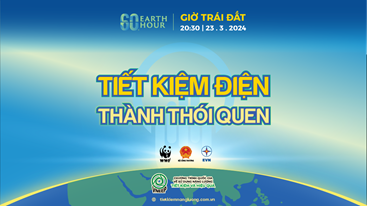
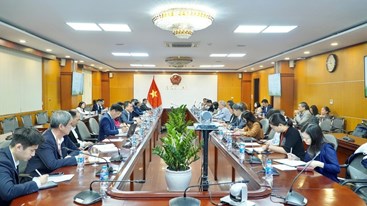
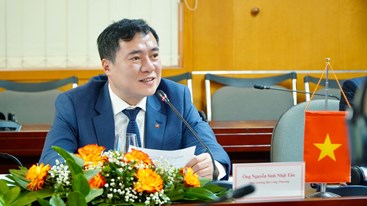



.jpg?w=367&h=206&mode=crop)
.jpg?w=367&h=206&mode=crop) Energy efficiency and conservation usage is an important aspect of the national energy development strategy
Energy efficiency and conservation usage is an important aspect of the national energy development strategy
 Challenges and Opportunities to promote energy efficiency market in Vietnam
Challenges and Opportunities to promote energy efficiency market in Vietnam
 The Ministry of Industry and Trade requests government agencies to coordinate in organizing Earth Hour 2024
The Ministry of Industry and Trade requests government agencies to coordinate in organizing Earth Hour 2024
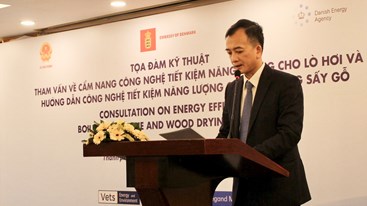 Consultation on Energy Efficiency Boiler Catalogue and Wood Drying Guideline
Consultation on Energy Efficiency Boiler Catalogue and Wood Drying Guideline
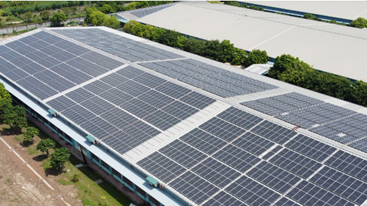 Son Ha Co., Ltd, applies energy efficiency and conservation measures
Son Ha Co., Ltd, applies energy efficiency and conservation measures
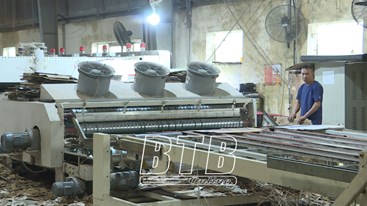 Phuc Kien Co., Ltd., is effectively implementing energy-saving measures
Phuc Kien Co., Ltd., is effectively implementing energy-saving measures
.png?w=367&h=206&mode=crop) Request for expression of interest - C2.1.13: Capacity Building on energy efficiency policies development
Request for expression of interest - C2.1.13: Capacity Building on energy efficiency policies development